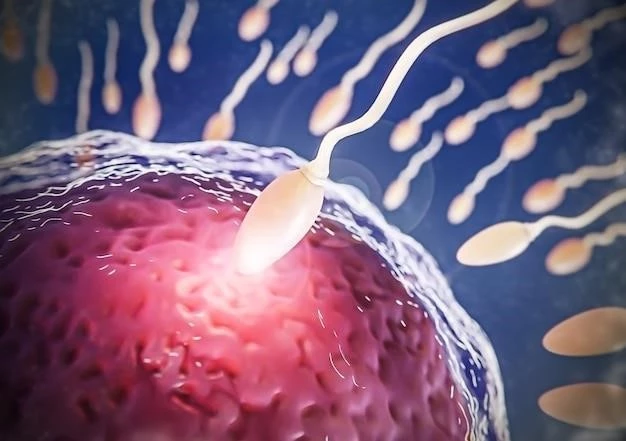Introduction to Disease⁚ Microcephaly Micropenis Convulsions
Microcephaly micropenis convulsions encompass a range of conditions characterized by abnormal head size, genitalia, and seizure activity. These rare disorders pose challenges in diagnosis and management.
Definition and Overview
Microcephaly micropenis convulsions encompass a range of conditions characterized by abnormal head size, genitalia, and seizure activity. These rare disorders present challenges in diagnosis and management, often requiring genetic testing and multidisciplinary care. Despite the complexity of these conditions, ongoing research efforts aim to uncover more about their underlying causes and potential treatment options.
Causes and Risk Factors
Microcephaly, micropenis, and convulsions can have various causes, including genetic abnormalities, syndromes, metabolic disorders, prenatal infections, and brain development issues. Understanding these factors is crucial for diagnosis and treatment of these complex conditions.
Genetic Abnormalities
ASPM primary microcephaly (ASPM-MCPH) and Kaufman oculocerebrofacial syndrome (KOS) are examples of genetic abnormalities that can lead to conditions like microcephaly, micropenis, and convulsions. These disorders often involve developmental delays, intellectual disabilities, and distinct physical features, highlighting the intricate genetic underpinnings of these complex conditions.
Syndromes and Metabolic Disorders
Kaufman oculocerebrofacial syndrome (KOS) and syndromes like Wiedemann syndrome are associated with developmental delays, intellectual disabilities, and distinctive physical features such as microcephaly, micropenis, and convulsions. These conditions often involve neurological and physical challenges, requiring comprehensive medical care and management strategies.
Symptoms and Diagnosis
Microcephaly, micropenis, and convulsions manifest through distinct symptoms like abnormal head size, genitalia, and seizure activity. Diagnosing these conditions involves evaluating physical characteristics and conducting neurological assessments to determine appropriate treatment strategies.
Microcephaly Symptoms
Microcephaly presents with a small head size, indicating brain growth abnormalities. Symptoms can include developmental delays, cognitive impairments, and possible seizure activity. Early diagnosis and intervention are crucial for managing the challenges associated with microcephaly.
Micropenis Characteristics
Kaufman oculocerebrofacial syndrome (KOS) is linked to hypotonia, prenatal-onset microcephaly, distinctive facial features, and growth deficiencies. Ocular and hearing issues, along with respiratory abnormalities, are common in individuals with this syndrome, emphasizing the diverse range of symptoms associated with micropenis and other related conditions.
Microcephaly, micropenis, and convulsions often co-occur, with seizures being a common symptom. These individuals may experience abnormal electrical brain activity leading to seizure episodes. Understanding the connection between these conditions is vital for providing comprehensive care and support.
Treatment and Management
Treatment for microcephaly, micropenis, and convulsions often involves a multidisciplinary approach, including medical interventions and therapeutic strategies tailored to address the complex challenges presented by these interconnected conditions. Research and clinical trials are continuously contributing to advancements in managing these rare disorders.
Convulsions and Seizure Presentation
Microcephaly, micropenis, and convulsions often co-occur, with seizures being a common symptom. These individuals may experience abnormal electrical brain activity leading to seizure episodes. Understanding the connection between these conditions is vital for providing comprehensive care and support.
Therapeutic Approaches
Management of microcephaly, micropenis, and convulsions involves a multidisciplinary approach combining medical interventions and therapeutic strategies tailored to the individual’s unique needs. Research and clinical trials play a crucial role in advancing treatment options for these complex and interconnected conditions.

Research and Studies
Recent studies on microcephaly micropenis convulsions aim to elucidate the underlying genetic and neurological aspects of these conditions while exploring innovative therapeutic approaches. Clinical trials show promise in enhancing the management of these complex and interrelated disorders.
Recent Findings on Microcephaly Micropenis Convulsions
Recent studies highlight the complex nature of microcephaly micropenis convulsions, linking genetic abnormalities like Kaufman oculocerebrofacial syndrome to developmental delays and distinctive physical features; Understanding these interconnections is essential for effective diagnosis and management strategies tailored to each individual’s unique presentation.
Clinical Trials and Future Prospects
Ongoing clinical trials focus on exploring novel treatment approaches for microcephaly, micropenis, and convulsions, offering hope for improved management strategies in the future. By investigating the genetic and neurological mechanisms underlying these conditions, researchers aim to enhance the quality of life for affected individuals and advance medical interventions.
Support and Resources
Patient support groups and accessing rare disease experts can be invaluable resources for individuals and families navigating the complexities of microcephaly, micropenis, and convulsions. Seek out these supportive networks for guidance and assistance tailored to your specific needs.
Patient Support Groups
Joining patient support groups specific to microcephaly, micropenis, and convulsions can provide individuals and families with valuable emotional support, resources, and a sense of community. These groups offer a platform to share experiences, exchange information, and find solidarity in managing the challenges posed by these rare conditions.
Accessing Rare Disease Experts
Knowledgeable rare disease experts can offer specialized insights and guidance for individuals grappling with microcephaly, micropenis, and convulsions. Seeking consultation from these professionals can aid in navigating the complexities of these rare conditions and accessing tailored care and resources.

Prevention and Outlook
While some forms of microcephaly micropenis convulsions are linked to severe developmental delay and high seizure risk, early diagnosis, genetic counseling, and access to specialized care can help in improving outcomes and overall quality of life for individuals affected by these complex conditions.
Preventive Measures
Preventive measures for microcephaly, micropenis, and convulsions may include genetic counseling to understand potential risks, prenatal screening to detect anomalies early, and early intervention programs to support neurodevelopmental challenges. Implementing proactive measures can help reduce the impact of these conditions and improve outcomes.
Prognosis for Individuals with Microcephaly Micropenis Convulsions
The prognosis for individuals with microcephaly, micropenis, and convulsions varies based on the underlying cause, severity of symptoms, and access to appropriate care. Early diagnosis and comprehensive management can significantly impact the long-term outcomes and quality of life for affected individuals.
